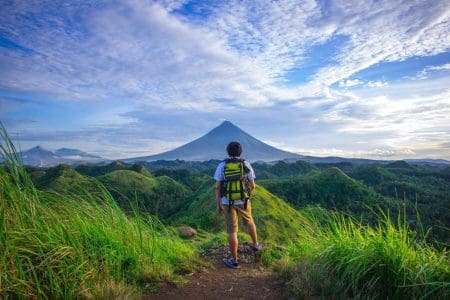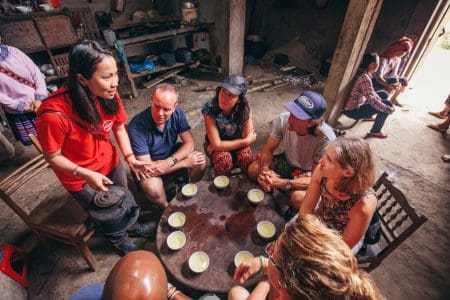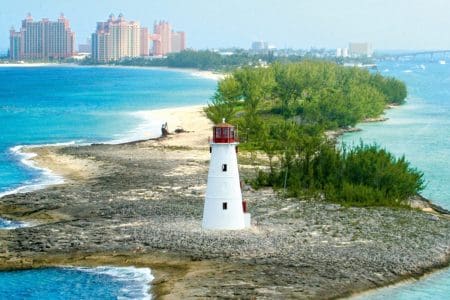Johan Smits discusses Sri Lanka, tuk tuk challenges and responsible travel with Julian Carnall, the man behind Large Minority and the Lanka Challenge.
How did Large Minority come about?
The country and people of Sri Lanka were instrumental in the founding of our responsible travel company as my co-founder and I were travelling around the island in 2007 when the idea of Large Minority was born.
We had borrowed a tuk tuk from a typically friendly and generous local and from the moment we got behind the wheel (or bar) we were hooked. After a little research we discovered a similar travel concept in India, which I participated in to gather some insight, and was immediately sold on the adventure aspect and the potential to affect positive change through adventure tourism.
What was the inspiration for the Lanka Challenge?
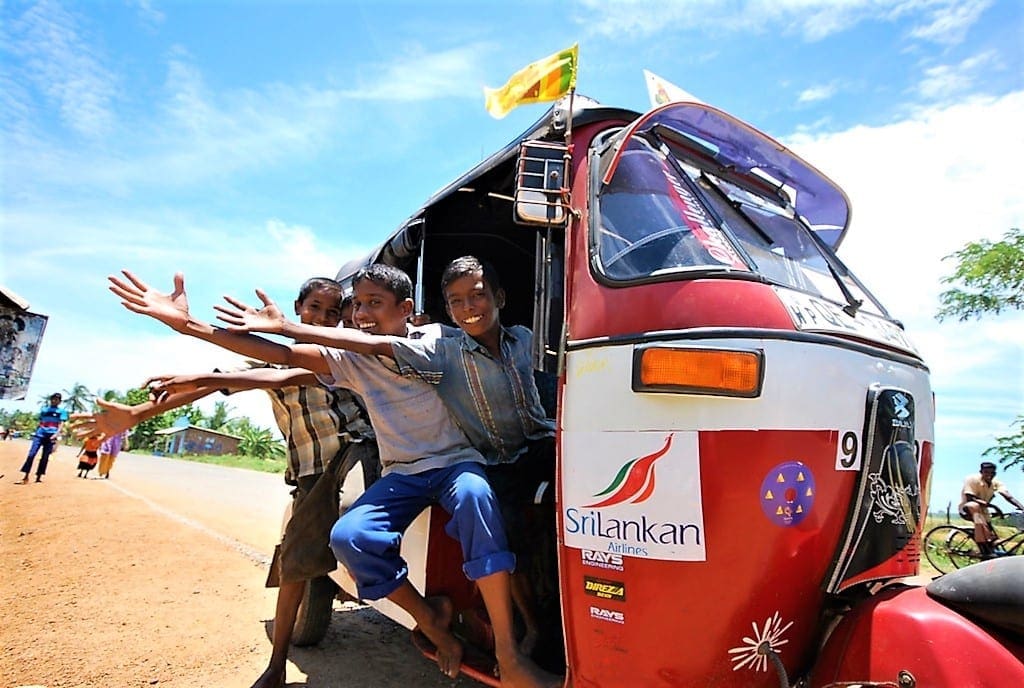
When we launched the Lanka Challenge in 2009, our imperative was to ensure our suggested routes encouraged participants to go off the beaten track, not just because it’s more adventurous, but to spread the tourist spend into communities that wouldn’t normally benefit. Plus, we wanted to work with local individuals and small companies, rather than larger profit-hungry companies that might divert the benefits of our investment elsewhere.
Can you explain more about your charitable work?
An aspect of all our challenges of which I’m particularly proud is we support carefully vetted charities in each of our trip destinations with 10% of all trip costs being donated. As a developing country there are a lot of people whose lives are still profoundly impacted by things that happened some time ago in Sri Lanka – including The Boxing Day tsunami and the lengthy civil conflict.
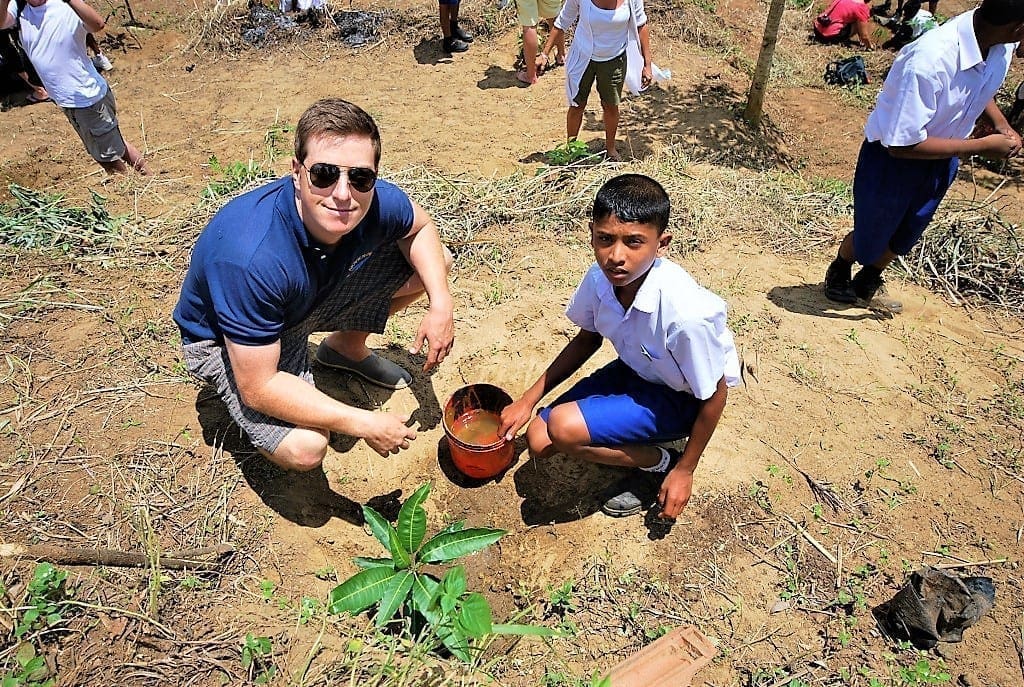
We continue to support regeneration initiatives through Red Cross donations and direct donations to schools and orphanages. In addition, we are very environmentally focused; a visit to our flagship initiative in Sri Lanka – LORRIS (Land Owners Restore Rainforest) – is always a hit with participants who get to plant a couple of trees to redevelop forest corridors vital for native species to flourish.
What advice would you give to someone considering travelling to Sri Lanka, especially as regards security?
In light of the recent terrorist attacks in Sri Lanka, we are currently in the process of recalibrating our charitable focus there and working with officials to determine where our next efforts are best placed to do the most good for the country we love so much. The Lanka Challenge is returning in September 2019 and, as we do with every trip, we’ll be encouraging our Challenge participants to do their own additional fundraising at home so we can have as big a positive impact as possible.
Read Mark Bibby Jackson’s adventure when he drove a tuk tuk around northern Thailand in Tuk Tuk Travels with Jen and Friends.
However, Sri Lanka generally is a very, very safe destination and in the decade of running tuk tuk challenges across the country we have never encountered any security risks. I attribute this to two things: the traditionally warm welcome of the Sri Lankan people and the careful route planning we do before each trip.
That said, all adventure travel comes with some inherent risks and the key to safety is being attentive to your surroundings and sensible in the way you present yourself. Be culturally sensitive; avoid making political statements or insulting religious sensibilities by dressing and acting inappropriately, listen to local advice and respect local authorities.
How do you choose which countries to operate in?
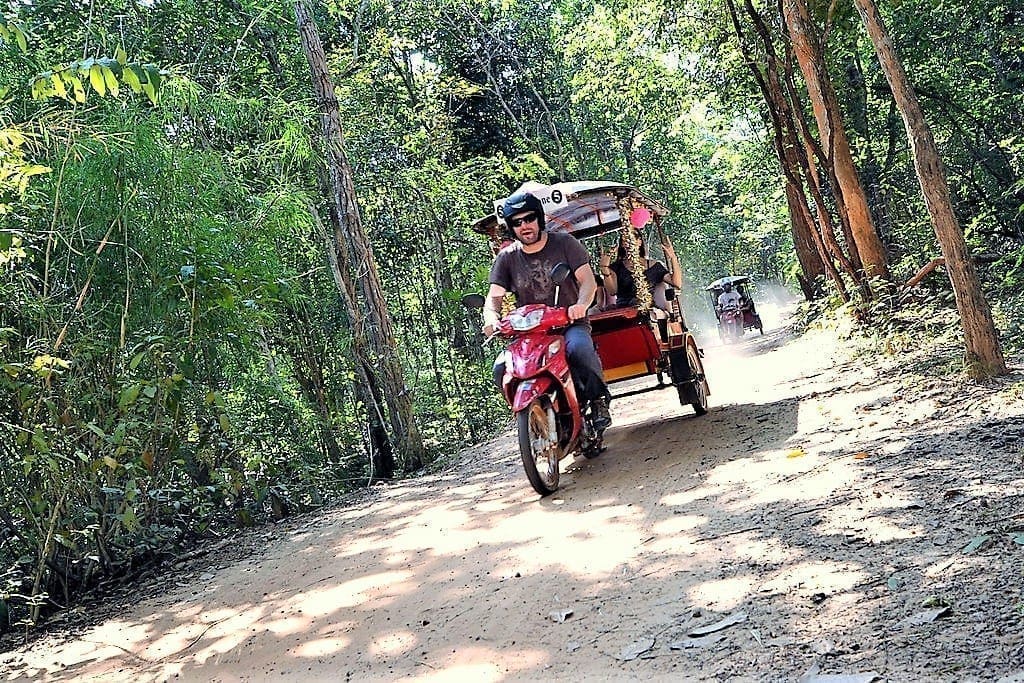
With Sri Lanka our source of inspiration and having built our confidence in the fact that we could actually run these crazy, fun, life-changing experiences for people of all ages and from all over the world, we decided to bring the Challenge format to other locations. Countries that delivered on incredible beauty and fascinating culture but that also would benefit from our unique brand of responsible tourism.
After Sri Lanka we developed the popular Cambo Challenge in Cambodia, then, we shook the format up a bit with a sailing challenge in the Philippines, developed a multi-transport adventure known as The Amazon Challenge and, our most recent trip was launched in 2018, The India Rickshaw Challenge. Basically, the only primary criteria we have is that there needs to be some zany transport involved to add to the fun.
Are you planning to expand into other countries in the near future?
We are in the process of developing another Challenge in a very popular country in the Southeast Asia region and are currently scoping another rickshaw adventure in the Middle East. Anyone interested in finding out more should get in touch.
How do you choose the local NGOs you decide to work with?
We aim to support smaller projects that can make immediate tangible difference in the short term rather than large scale projects where funds and ideas can sometimes become blurred over time. A large part of our vetting process is meeting the local organisations and those personally involved, witnessing first-hand the work that they implement while making sure they are also well trusted by the local population.
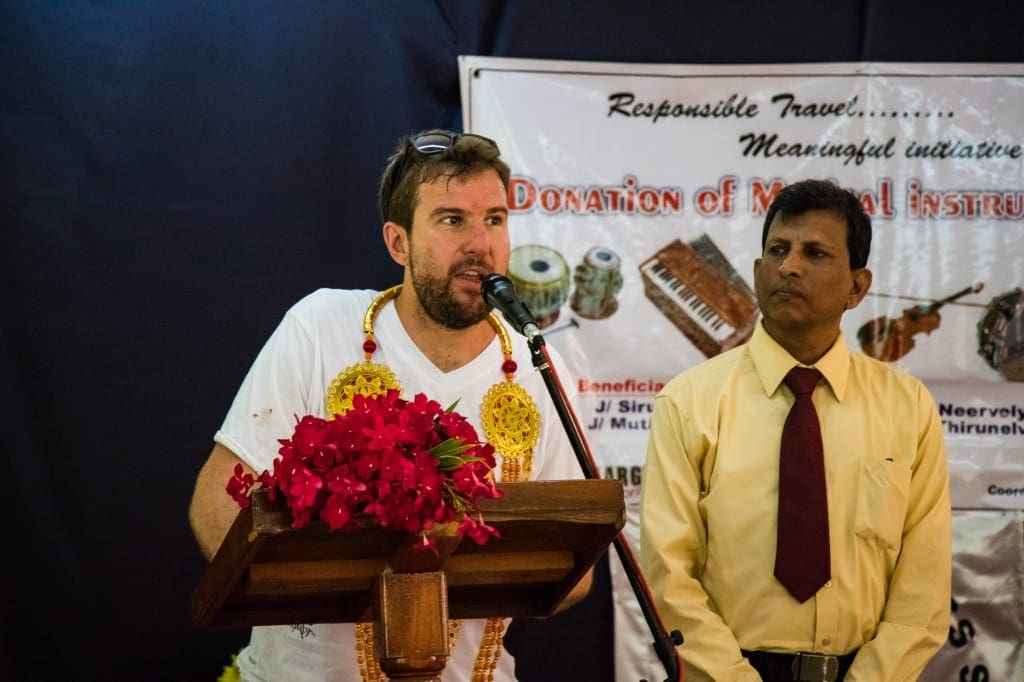
In the specific case of Sri Lanka, our operations began at a very politically sensitive time, with the lengthy civil conflict coming to an end in March 2009, only a few months before our first ever Lanka Challenge. We were very aware that we needed to support a politically neutral organisation which is why we chose to support the Sri Lankan Red Cross society. Ten years later we split support in Sri Lanka between the Red Cross and the LORRIS foundation.
Do you calculate the carbon footprint each Challenge generates?
Yes, we use generic carbon footprint calculators to factor participants travel to and from destinations as well as the Challenge they’re participating in.
Do you have a way of offsetting that carbon footprint?
Yes. We plant trees. Lots of trees. A minimum of two per person per trip. As mentioned, we run a tree planting programme in Sri Lanka with the LORRIS foundation. Not only do they help facilitate the tree planting programme, but they actively manage the health and maintenance of the trees, something that is often overlooked in similar programmes.
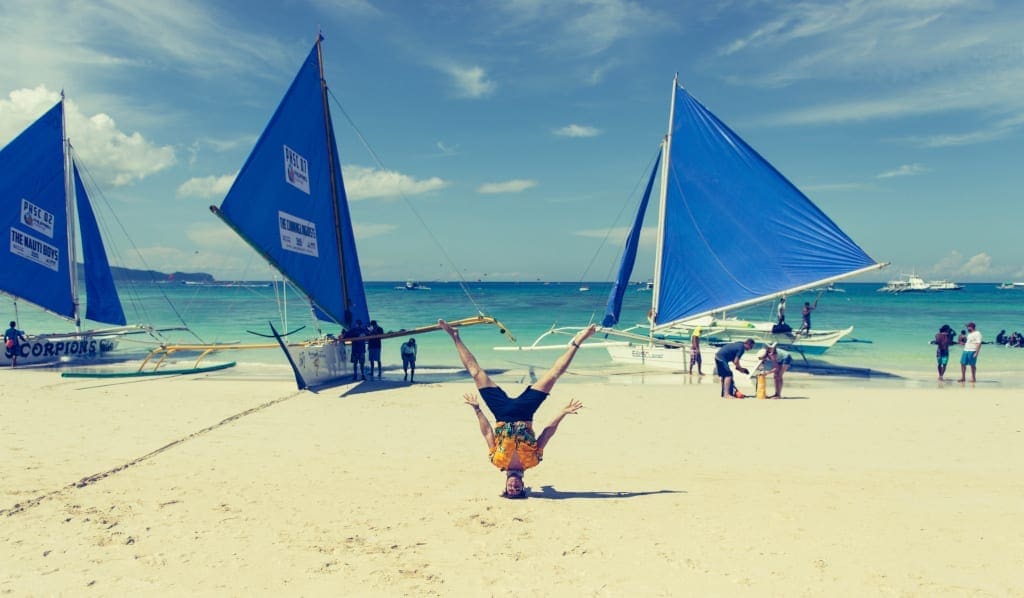
How do you recycle your plastic waste?
As a small business we produce very little plastic waste day to day. All plastic that is purchased through the business is recycled through the local council’s recycling programme. Recycling while on trips is slightly more complicated due to the limited recycling facilities in our Challenge countries. We recycle wherever possible and we provide participants tips and suggestions on how they can reduce their own waste while travelling with us. We are extremely environmentally conscious in other ways and we only book accommodation from providers that have committed to an environmental policy.
What are your top three tips for responsible travel?
Small adjustments to the way you travel can have a big impact. From your choice of mode of travel (e.g. why take an internal flight if you can take a scenic train ride with the locals?) to your menu choice for dinner. By choosing regional fare rather than imported goods you’re not only supporting local suppliers you’re reducing the demand for carbon footprint-heavy foods.
Actively seek out travel operators that highlight sustainability and don’t be shy to ask questions about their policies and practises. Most companies who are truly committed will have detailed information available on their website.
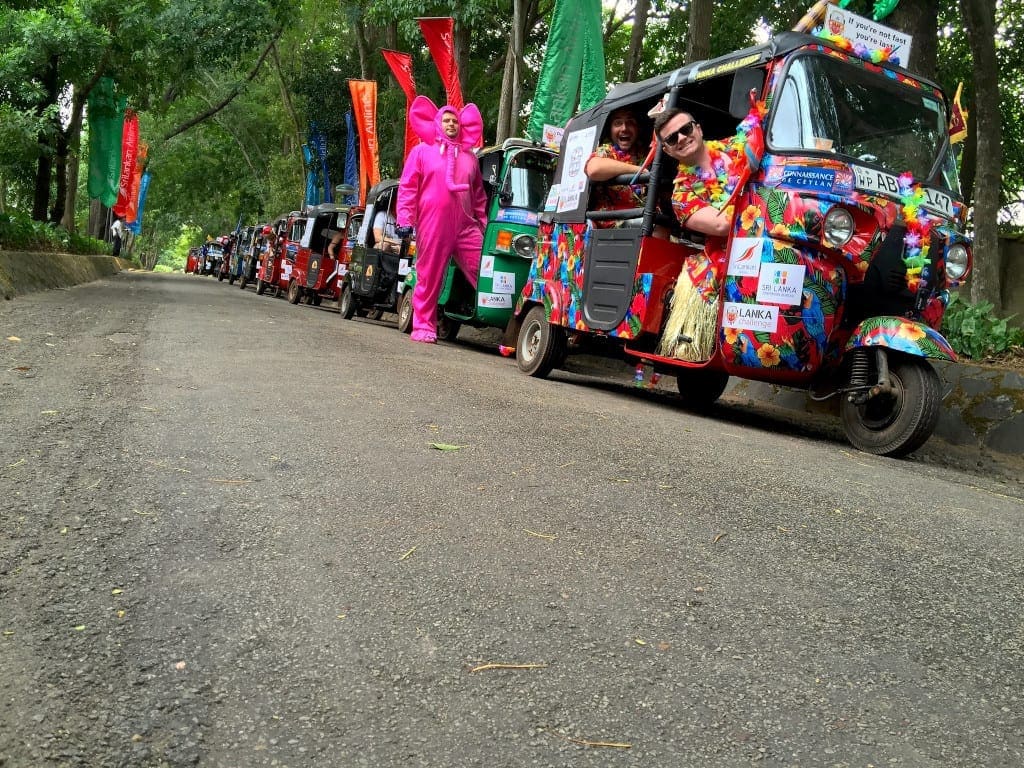
This final recommendation is very personal to me. Large Minority has a particular focus on avoiding animal cruelty, which sadly can be a feature of broader tourism in the countries in which we operate. I strongly advise against visits to animal orphanages and if you feel you must visit such locations, be sure to do proper research before giving them your money for a photo opportunity while handling any wildlife.
Large Minority and Responsible Travel
Anyone interested in Large Minority’s responsible travel initiatives can read more about them on its website.
